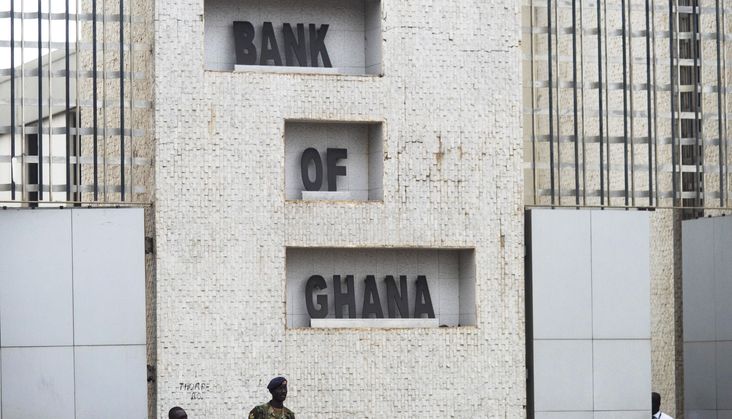‘New BoG head office wouldn’t have been a priority project today’ – Governor
The Governor of the Bank of Ghana, Dr Ernest Addison has explained that the decision to construct a new head office building reportedly at a cost of $250 million, preceded the current economic crisis.
He said the construction commenced in 2019 when the central bank was making profits.
Speaking to the media on Monday, August 21, Dr Addison said the decision to construct the structure would not have been taken under the current circumstances.
According to him, the project has been running for the past three years and is 50% complete.
“The decision to commence construction was taken in 2019 when the Bank generated profits. Appropriations for the Head Office were made each year from profits in 2019, 2020, and 2021. The project has therefore, been going on for over 3 years.”
“The DDEP only took place in January 2023. If we were to be taking the decision today, building a legacy Head Office would not have been a priority. However, this is a project that has been running for 3 years and about 50 percent complete.”
He, however, did not make mention of the exact amount being quoted as the cost of the project. He said he has requested a more detailed response to be released to address all other concerns regarding the project.
He noted that, “The Bank is fully aware of its responsibilities to ensure that the costs do not escalate beyond reasonable levels and that many of the original design features to including data centre, currency processing centre, ICT equipment, specialised security features have been deferred and only grey boxes provided for future use to manage costs.”
Dr Addison said the new building has sensitive features which the current office does not have.
These features he said will include data centres, and currency processing centres among others.
He insisted that the new building will meet a modern day head office of a central bank compared to those in Abuja and Dakar when completed.
“The Bank then began to plan the building of its new head office taking into consideration the need to ensure that the building meets all the requirements of a modern central bank of international standards similar central bank head office buildings in Abuja and Dakar and include provision for data centres, currency processing centres, volts and other sensitive installations. So, it is not just a simple ordinary building.”
Dr Addison also insisted that the central bank followed all procurement processes and did not breach any law in this endeavor.
“Let me reemphasise that the Bank followed all the necessary procurement processes in this endeavor,” he said.
According to him, processes for the new head office commenced in the 1990s and preceded his tenure.
“The Bank of Ghana as far back as 1990s began search for a suitable and secured land for a head office. In 2012, the bank was allocated an unnumbered 5.19 acre land at Accra Central by the Lands Commission which also had issues.”
“The Bank did not have access to the land since the Ministry of Foreign Affairs and Regional Integration refused to give to give the Bank vacant possession on the grounds that they had never agreed to give up ownership of the land but the Bank continued to search for a new land for its head office since 2013 to 2016.”
“More recently, in 2018, the Bank approached the State Insurance Cooperation (SIC) to acquire its vacant land at Ridge near the Ridge Hospital.”
“The government issued an Executive Instrument to allow the Bank of Ghana acquire that land and the SIC was duly compensated.”
The Minority in Parliament at a press conference on Tuesday, August 8, disclosed cost of the central bank’s new head office under construction.
Its Leader, Dr Cassiel Ato Forson said the bank spending a whopping $250 million dollar to build a head office in the current economic crisis was untenable.
It has thus demanded the resignation of the BoG Governor and his two deputies for the GHS60 billion loss the bank incurred in 2022.
But the Governor has explained that the losses were not occasioned by mismanagement but largely by the government through its initiatives like the Domestic Debt Exchange Programme, DDEP and other factors.



